We all want our pets to live longer, healthier lives. As beloved members of our families, their well-being is a top priority, and understanding how to provide the best care for them can make a world of difference. From diet and exercise to mental stimulation and regular check-ups, there are numerous ways to enhance your pet’s lifespan. Here are 14 vet-approved tips to help your furry friend thrive and remain by your side for as long as possible.
1. Feed Them a Balanced Diet

Feeding your pet a well-balanced diet is foundational for their health and longevity. Quality nutrition ensures they receive the essential vitamins, minerals, and amino acids they need to maintain healthy skin, coat, and vital organs. While it might be tempting to feed them table scraps or indulge them with treats, sticking to veterinarian-recommended food keeps their weight and nutrient levels in check. It’s a simple yet effective way to promote a longer, healthier life.
According to a study published in the Journal of Veterinary Internal Medicine, pets fed with nutritionally balanced diets have significantly better health outcomes. This research highlights the importance of choosing food designed to meet your pet’s specific health needs. Whether they require a low-fat diet or are prone to allergies, understanding their unique nutritional requirements is key. Consult with your vet to select the best diet for your pet’s age, breed, and health status.
2. Ensure Regular Exercise

Exercise is crucial not only for maintaining your pet’s physical health but also for their mental well-being. Regular physical activity helps to prevent obesity, strengthens their cardiovascular system, and keeps their joints healthy. For dogs, this could mean daily walks, while for cats, engaging in interactive play sessions can suffice. Remember, a tired pet is often a happy pet.
Adequate exercise also helps curb behavioral issues that stem from boredom or pent-up energy. You might notice fewer incidents of destructive behavior or excessive meowing and barking. Make exercising a part of your daily routine to keep your pet engaged and in shape. It’s an enjoyable way to bond and promotes a healthier lifestyle for both of you.
3. Schedule Regular Vet Visits
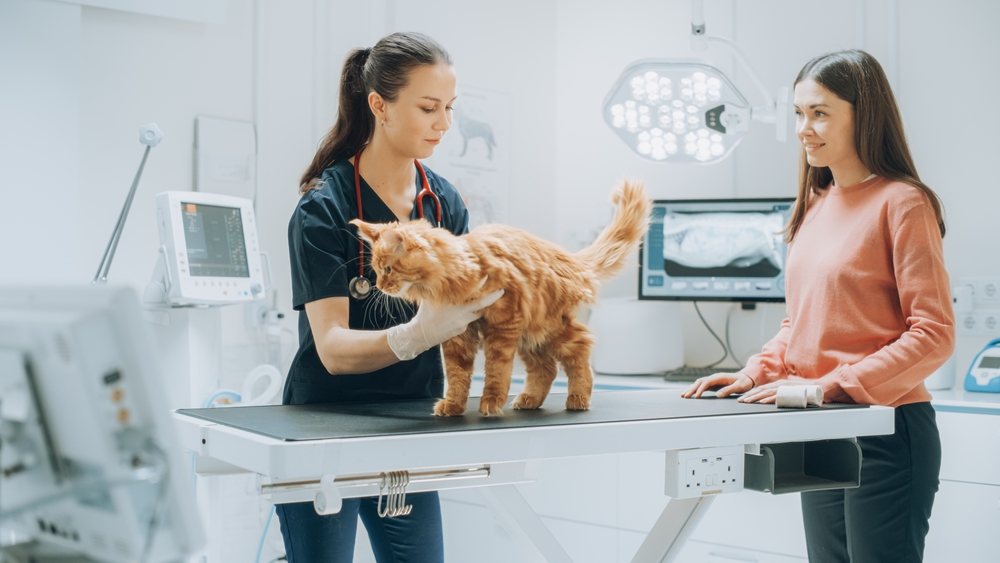
Regular vet check-ups are essential for monitoring your pet’s health and catching potential issues early on. Annual or bi-annual visits allow your vet to assess your pet’s overall condition, administer vaccines, and provide preventative care. By keeping up with these appointments, you’re ensuring that any health concerns are addressed promptly, giving your pet the best chance at a longer life.
A study featured in the Veterinary Record emphasizes the impact of regular veterinary care on pet longevity. It finds that pets receiving consistent check-ups experience fewer serious health issues and have a higher quality of life. Your vet can tailor a healthcare plan specific to your pet’s needs, considering factors like age, breed, and pre-existing conditions. Prioritize these visits to keep your pet healthier for longer.
4. Keep Their Teeth Clean

Dental care is often overlooked but plays a significant role in your pet’s overall health. Poor oral hygiene can lead to the development of tartar, gum disease, and ultimately affect their internal organs. Regular brushing, dental chews, or professional cleanings can make a huge difference. Pets with good oral health often experience fewer health problems and live longer.
You might be surprised at how receptive your pet can be to teeth cleaning once they get used to it. Start with a gentle approach, using pet-specific toothpaste, and gradually build up to regular brushing. Dental health is closely linked to heart and kidney health, making it a critical aspect of their care. A fresh breath and a longer life are both great rewards for this small effort.
5. Provide Mental Stimulation
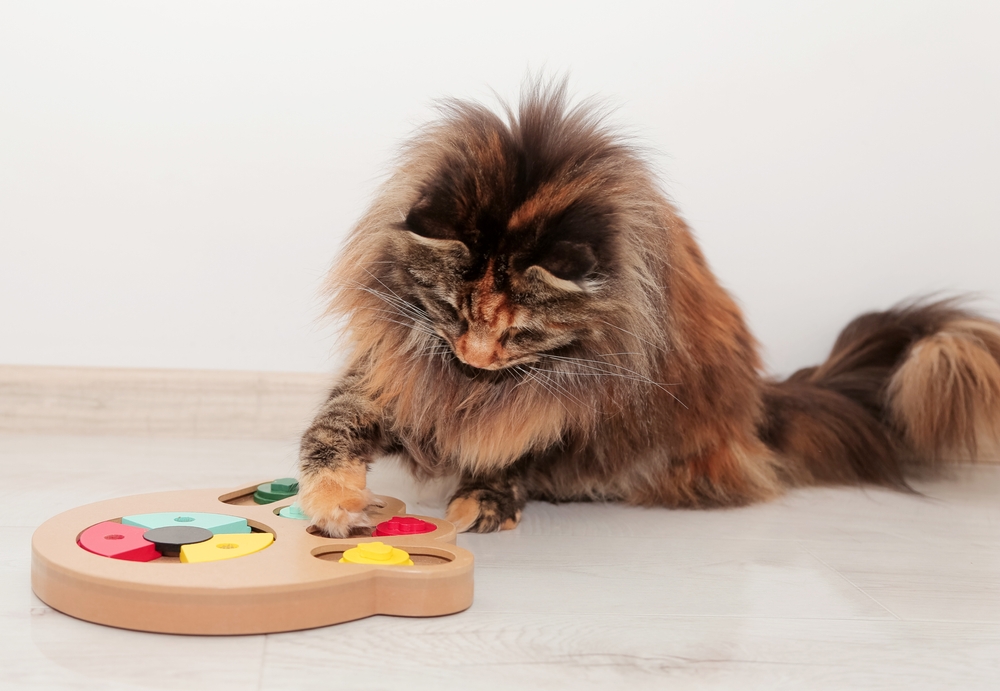
Mental stimulation is as crucial to your pet’s well-being as physical activity. Engaging their minds helps prevent cognitive decline and curbs unwanted behaviors born out of boredom. Puzzle toys, training sessions, or even simple games of hide and seek can challenge their brain and keep them sharp. Keeping them mentally active is particularly vital as they age.
The Journal of Veterinary Behavior outlines the importance of mental enrichment for pets’ cognitive health. It suggests that regular mental exercises can delay the onset of age-related cognitive issues. Enrichment doesn’t have to be complicated; even short daily sessions can have profound effects. Make mental stimulation a staple in your pet’s routine to support their longevity.
6. Maintain a Healthy Weight

Obesity is a growing concern for pets, leading to a range of health issues, including diabetes and joint problems. Maintaining a healthy weight through balanced diets and regular exercise is essential. Work with your vet to develop a weight management plan if your pet is overweight. Even slight weight loss can improve their quality of life and extend their lifespan.
Monitoring their food intake and portion sizes can prevent unnecessary weight gain. Avoid free-feeding and stick to scheduled meals to regulate their diet better. Healthy snacks like vegetables can be a guilt-free indulgence they’ll love. Achieving and maintaining their ideal weight is a tangible step toward a healthier, longer life.
7. Spay or Neuter Your Pet
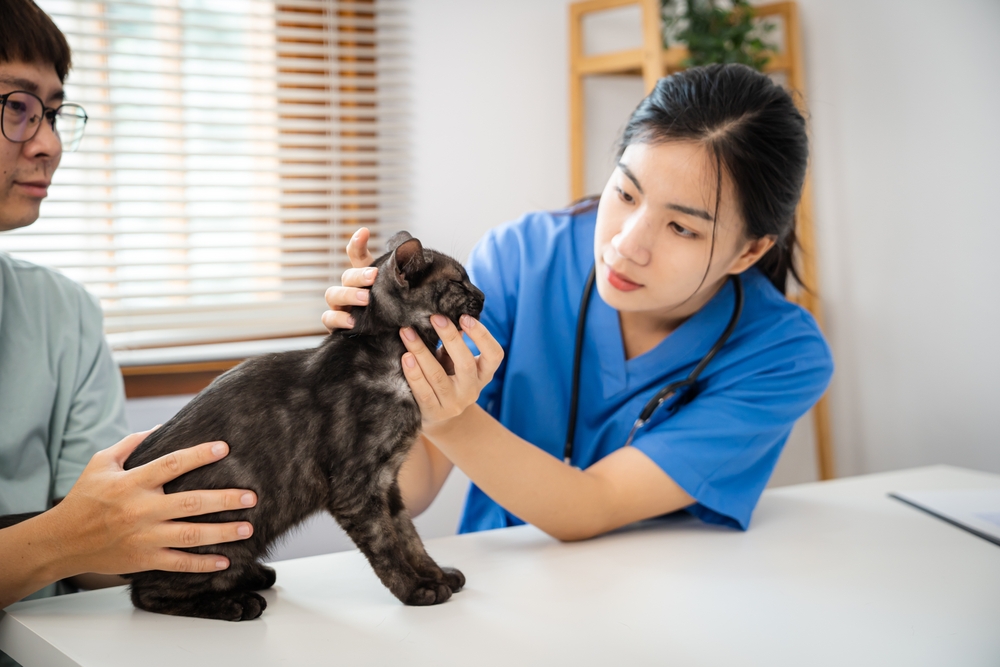
Spaying or neutering your pet has long-term health benefits beyond preventing unwanted litters. This procedure can reduce the risk of certain cancers and eliminate the risk of uterine infections. It’s a responsible decision that also contributes to controlling the pet population. Most importantly, it can lead to a calmer, more content pet, potentially adding years to their life.
Research published in the Journal of the American Veterinary Medical Association confirms the correlation between spaying or neutering and increased life expectancy. This study notes a marked reduction in certain health risks for neutered pets. Consult with your vet to determine the right timing for this procedure for your pet. It’s a proactive step towards ensuring a longer, healthier life.
8. Offer Routine Grooming
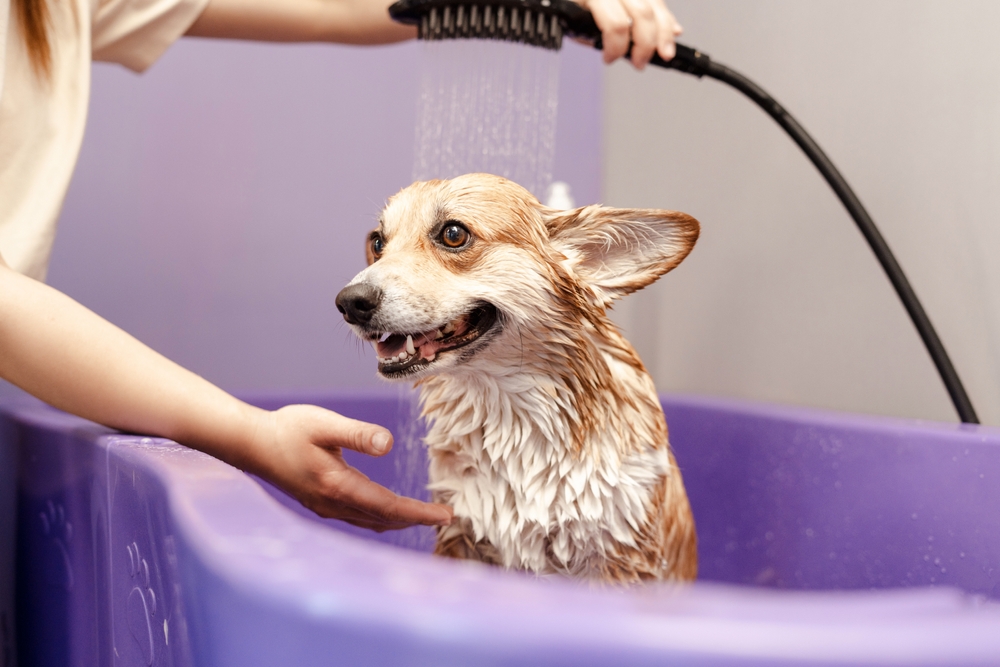
Routine grooming isn’t just about keeping your pet looking good; it’s an essential component of their health care. Regular grooming sessions help detect skin issues, parasites, and abnormal lumps early. For pets with longer coats, grooming can prevent matting and skin infections. It also strengthens your bond with them and adds to their sense of well-being.
Grooming can be a relaxing routine that your pet comes to enjoy. Use the time to check for any changes in their body, such as new lumps or bumps. It’s also a moment to reinforce positive behavior and trust between you. A well-groomed pet is often a healthier pet, ready to enjoy life to the fullest.
9. Provide a Safe Environment

Creating a safe environment is one of the simplest yet most effective ways to protect your pet. This means securing potentially hazardous areas, removing toxic plants, and ensuring they have a comfortable living space. A pet-proof home minimizes the risk of accidents and provides a stress-free environment. Their safety is paramount for a long, healthy life.
Regularly assess your home for new hazards as your pet grows and becomes more adventurous. Make sure their space is free from small objects they could swallow, and secure any electrical cords. Providing them with a cozy bed and safe play area helps them feel secure and loved. A safe home is the foundation of a long, happy life with your pet.
10. Pay Attention to Behavioral Changes

Changes in behavior can be an early indicator of health issues in pets. A sudden shift in their energy levels, eating habits, or interactions may signal a problem. Being observant and proactive when these changes occur can lead to early diagnosis and treatment. This attentiveness not only safeguards their health but strengthens the trust between you and your pet.
Discuss any behavioral changes with your vet, no matter how minor they seem. Even subtle shifts can point to underlying issues that require attention. By staying in tune with your pet’s behavior, you can ensure timely intervention if something is amiss. This vigilance is a cornerstone of responsible pet ownership and their long-term well-being.
11. Ensure Fresh Water is Always Available
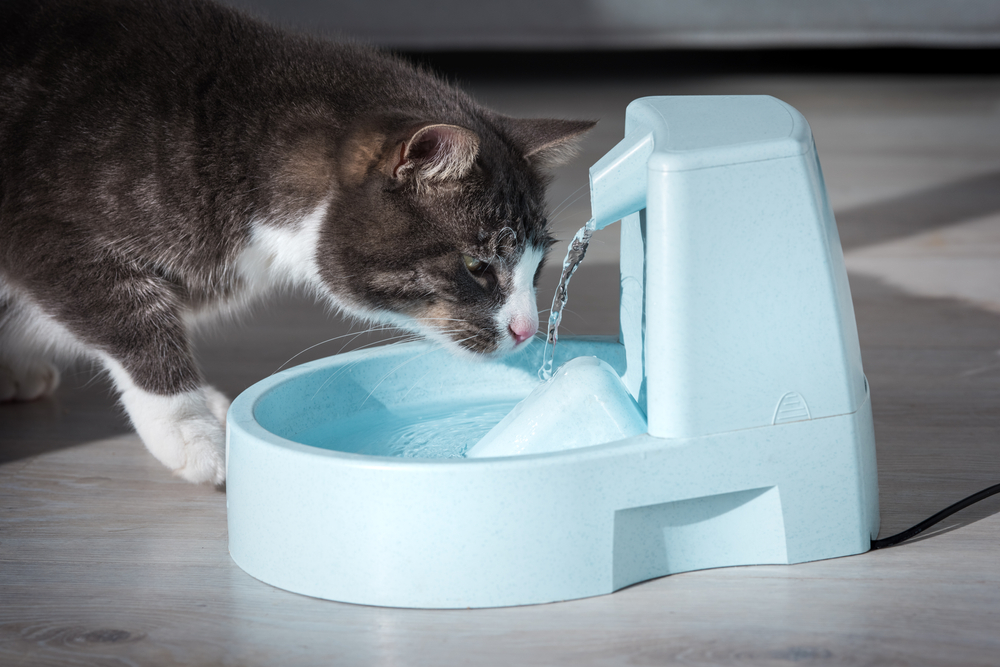
Access to clean, fresh water is a fundamental need for your pet’s health. Proper hydration supports digestion, temperature regulation, and organ function. Especially during hot weather or after exercise, ensuring your pet has enough water is crucial. An adequately hydrated pet is less prone to urinary infections and kidney issues.
Make it a habit to refresh their water bowl regularly, keeping it clean and inviting. For pets that might be reluctant to drink, try using a pet fountain to encourage them. Monitoring their water intake can offer insights into their health; significant changes might warrant a vet visit. Keeping them hydrated is an easy yet impactful way to support their longevity.
12. Make Time for Play

Playtime is not just a physical activity; it’s a critical component of your pet’s mental and emotional health. Engaging in play strengthens your bond and provides an outlet for your pet’s natural behaviors. Regular play sessions can reduce stress, prevent depression, and improve overall quality of life. It’s a joyful way to ensure your pet stays happy and healthy.
Tailor playtime activities to your pet’s interests and energy levels. Whether it’s a game of fetch, a tug-of-war session, or interactive toys, find what they love most. The key is consistency and enthusiasm, showing your pet that they’re valued and loved. Playtime is an investment in their happiness, often translating to a longer, more fulfilling life.
13. Keep Their Vaccinations Up-to-Date

Vaccinations are a vital part of preventative healthcare, shielding your pet from a host of infectious diseases. They not only protect your pet but contribute to the overall health of the pet community. Sticking to a vaccination schedule recommended by your vet helps ensure your pet remains healthy and less susceptible to life-threatening illnesses. Vaccines are a simple yet powerful tool in promoting their longevity.
Discuss with your vet the appropriate vaccination schedule for your pet, considering their lifestyle and health risks. Especially if your pet interacts with other animals, staying up to date on vaccines is crucial. Remember, prevention is always better (and often cheaper) than treatment. By prioritizing vaccinations, you’re actively working to give your pet the best chance at a long, healthy life.
14. Show Them Love and Affection

Never underestimate the power of love and affection in your pet’s life. Pets thrive when they feel loved, leading to a happier, more content life. Regular cuddles, verbal praise, and physical touch are essential in building a strong, trusting relationship. This secure attachment can decrease anxiety and improve their overall well-being.
Spending quality time with your pet is invaluable for both of you. Whether it’s a nightly cuddle on the couch or a peaceful walk together, these moments reinforce your bond. Loving your pet is about more than meeting their basic needs; it’s about nurturing their spirit. In return, you’re rewarded with their unwavering loyalty and a life filled with mutual joy.
